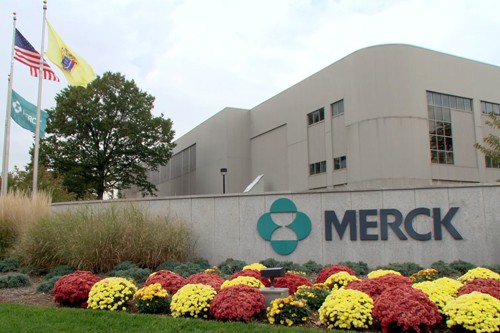
Merck & Co says its letermovir drug for preventing an opportunistic infection in transplant patients has hit its targets, setting the project on course for a possible filing in 2017.
Letermovir (AIC426) is being tested for prophylaxis of cytomegalovirus (CMV) activation in patients receiving haematopoietic stem cell transplants – an indication which according to Credit Suisse forecasts could make it a $350m market by the end of the decade.
Letermovir has been granted orphan drug status in the EU and the US, and has also been earmarked for fast-track review by the FDA.
There is a significant need for additional medicines for the treatment of CMV infection, which is one of the most common viral infections affecting transplant patients.
CMV is a herpes virus, infecting 50-90% of the adult population, with a majority remaining without symptoms. However, without preventive drugs approximately 80% of CMV-seropositive patients experience CMV infection after an allogeneic (donor) HSCT, which can lead to organ damage and symptoms such as visual impairment, pneumonia and hepatitis.
Current drugs such as valganciclovir target CMV DNA polymerase and tend to be associated with poor oral bioavailability, the development of resistance and dose-limiting toxicities such as kidney damage and anaemia.
Letermovir goes after another enzyme – viral terminase – and so could provide another line of therapy for resistant infections, while data from a phase II trial suggests it also has a good tolerability profile.
Merck licensed the rights to develop and commercialize letermovir – along with a back-up candidate and other early-stage candidates that act against CMV via an alternate mechanism – from Germany’s AiCuris in 2012.
AiCuris – which was formed as a spin-out from Bayer’s anti-infectives unit in 2006 – pocketed an upfront payment of €110m and – with milestone payments – could get up to €442.5m plus royalties from Merck.
Merck hasn’t given any details yet on the phase III trial results, saying it will submit them for presentation at a future medical conference.
The company’s good news comes after another CMV drug developer – Chimerix – reported that its brincidofovir CMV candidate failed a pair of pivotal trials.
Other companies developing CMV-targeting drugs include Atara Biotherapeutics and ViraCyte, which have CMV-specific T-cell therapies in development, while Shire has a small-molecule drug called maribavir heading into phase III testing that it acquired along with ViroPharma in 2013.
Meanwhile, Sanofi, GlaxoSmithKline/AlphaVax, Astellas, Helocyte, Vical and VBI Vaccines have preventive vaccines against the virus in clinical testing.




